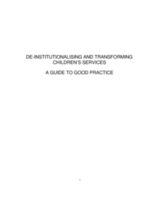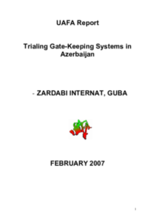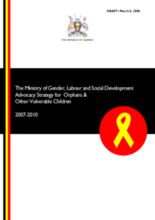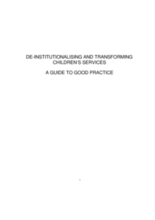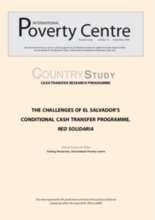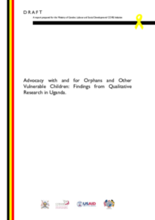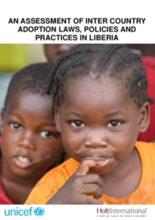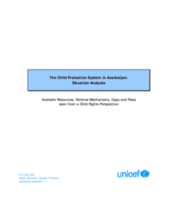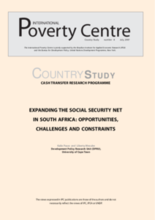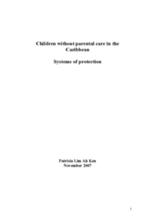Displaying 931 - 940 of 1028
A clear, concise, and evidence-based summary of the effects of institutional care on children. Identifies key steps to transforming children's services to promote alternative care. Links to training resources at European Union Daphne Project website.
Documents implementation of Azerbaijan's national de-institutionalisation and alternative care programming
An advocacy strategy to increase support for orphans and OVC in Uganda.
This good practice guide provides a comprehensive description of the steps involved in the process of moving from institutional care to community-based services.
Provides analysis of the historical background and current structure of El Salvador's conditional cash transfer programme with attention to family integration
This study identifies key issues that need to be addressed in order to raise the profile of OVC and the Ministry of Gender, Labour and Social Development in Uganda.
This report presents the findings of an assessment conducted between 8 July and 22 August 2006 that gathered and analyzed information on inter-country adoption to support strengthening Liberia’s adoption laws and develop operating guidelines for adoption agencies.
Analyzes emerging protection problems and priorities of children living in Azerbaijan. Drafts a map of the institutional system related to child welfare at a national level.
Examines constraints to expansion of the social welfare net in South Africa. Cites substitution taking place within the social budget since education and health expenditures have already declined in favour of increased welfare transfer expenditures.
A regional assessment of responses to children outside parental care in the Caribbean. Extensive research on successful examples of alternative care. Includes recommendations and lessons learned.

